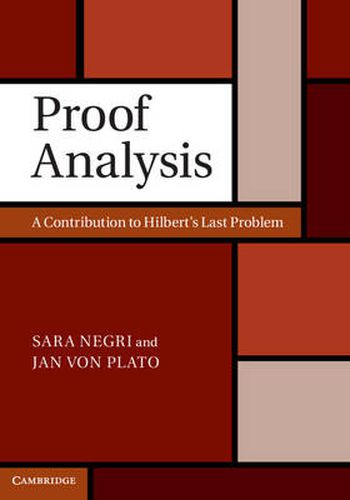Readings Newsletter
Become a Readings Member to make your shopping experience even easier.
Sign in or sign up for free!
You’re not far away from qualifying for FREE standard shipping within Australia
You’ve qualified for FREE standard shipping within Australia
The cart is loading…






This book continues from where the authors’ previous book, Structural Proof Theory, ended. It presents an extension of the methods of analysis of proofs in pure logic to elementary axiomatic systems and to what is known as philosophical logic. A self-contained brief introduction to the proof theory of pure logic is included that serves both the mathematically and philosophically oriented reader. The method is built up gradually, with examples drawn from theories of order, lattice theory and elementary geometry. The aim is, in each of the examples, to help the reader grasp the combinatorial behaviour of an axiom system, which typically leads to decidability results. The last part presents, as an application and extension of all that precedes it, a proof-theoretical approach to the Kripke semantics of modal and related logics, with a great number of new results, providing essential reading for mathematical and philosophical logicians.
$9.00 standard shipping within Australia
FREE standard shipping within Australia for orders over $100.00
Express & International shipping calculated at checkout
This book continues from where the authors’ previous book, Structural Proof Theory, ended. It presents an extension of the methods of analysis of proofs in pure logic to elementary axiomatic systems and to what is known as philosophical logic. A self-contained brief introduction to the proof theory of pure logic is included that serves both the mathematically and philosophically oriented reader. The method is built up gradually, with examples drawn from theories of order, lattice theory and elementary geometry. The aim is, in each of the examples, to help the reader grasp the combinatorial behaviour of an axiom system, which typically leads to decidability results. The last part presents, as an application and extension of all that precedes it, a proof-theoretical approach to the Kripke semantics of modal and related logics, with a great number of new results, providing essential reading for mathematical and philosophical logicians.